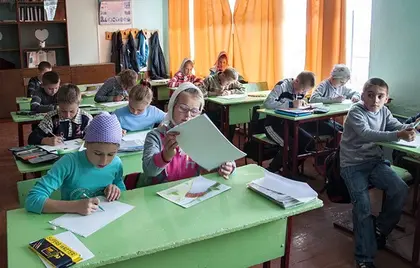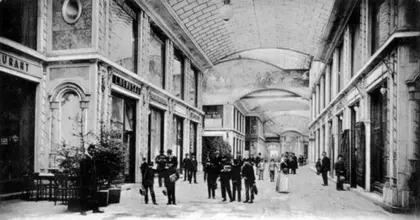Small religious communities living in Ternopil and Ivano-Frankinsk oblasts are identified as Amish, but are not.
They are closed Christian communities who have no name for themselves and live in rural settlements along the Dniester River.
Their neighbors call them Amish for their similarity with the renowned traditionalist movement, but the Ukrainian communities are autonomous and have developed independently from similar communities in the West. They were founded in the 1950s by a man called Ivan Derkach, but not much else is known. The religious beliefs are close to Baptists.
They refuse to be photographed and won’t speak to journalists.
The only way to learn more is to talk with those living next to them in the villages of Stinka, Kosmyryn, Snovydiv, Mostyshche and Budzyn.
Valentyna Shtepula, a resident of the village of Stinka and the principal of a local school, lives next to the reclusive members of religious community. At least 1,800 of the village’s 3,020 residents are from this mysterious community.
Shtepula’s school is the biggest in Buchach District in Ternopil Oblast, with 630 pupils enrolled. That’s mainly due to the rapid growth of the religious community – at least 90 babies were born in Stinka last year.
“They are Christians, but they don’t go to church,” Shtepula says about her neighbors. “I know that they are a rather closed community, so women pray apart from the men and children.”
According to school principal, they use the Bible while praying at home, but being a Protestant denomination, they do not venerate the Virgin Mary, as in the Orthodox and Catholic faiths.

Meet the American blogger who now makes Ukraine home
Orthodox believers, Greek Catholics, Evangelists and one family of Jehovah’s Witnesses also inhabit the village. There are no religious conflicts between the various groups, Shtepula says.
Unlike the U.S. Amish, who dress plainly, the members of this Ukrainian community prefer simple cuts but bright colors. The women wear long skirts and cover their hair with a headscarf. A married woman wears two headscarves.
The men and boys wear flat caps, which has earned them the nickname kashketnyky –from the word kashket, meaning a flat cap.
The children attend primary school but never leave the village to continue studies in a college. The members of the community never travel – except when taking on temporary jobs in the cities.
Their houses in Stinka are simple, with whitewashed walls. The windows are draped with clean, white tulle curtains. Life for them is frugal – they don’t have electricity and water supply, and wash clothes in the Dnister River or in washtubs in their yards. They cook on wood-burning stoves, grow vegetables, and keep cattle and poultry.
In one concession to modernity, some have begun using mobile phones a few years ago, but lacking electricity, they have to charge them at neighbors’ houses.
The villagers don’t regularly visit and tend the graves of their deceased relatives, as in the Ukrainian tradition. The one exception is the grave of Derkach, the founder of the community. Expecting his resurrection, pious villagers have been visiting his burial place every day for six years now.
The community’s men are the sole bread winners by taking jobs in the cities of Lviv, Ternopil and Ivano-Frankivsk, but never too far away. They are skilled in working with stone and making fences. Although they do not have electricity in their homes, the men do use electrical tools and devices when working for others.
The earned money gets divided between all the families, and a tithe goes to the community budget.
“The biggest family in our village has 18 children,” Shtepula says. “They say ‘There shall be as many as God gives us.’”
Shtepula recalled an old man from the neighboring village of Yavoriv who had 70 grandchildren. He didn’t remember their names but could recognize them among other children.
Living as they do in a community apart, far from the conflict in the Donbas, the current crisis in the country has had little impact on the community – they are aware of it, but they are against using firearms and will not serve in the Ukrainian army for religious reasons. Some of them were imprisoned in Soviet times for their refusal to serve in the army.
They also don’t vote in the presidential or parliamentary elections. Locally, they do vote for the village head.
Although the community is not active in national politics, some do subscribe to the newspaper Ukraina Moloda (Young Ukraine) to keep up-to-date with the news in the rest of the country.
“I can talk about any political topic with my ‘Amish’ neighbor Vasyl,” she says.
Kyiv Post staff writer Yuliana Romanyshyn can be reached at [email protected].
You can also highlight the text and press Ctrl + Enter







Comments (0)